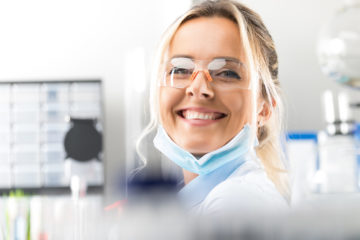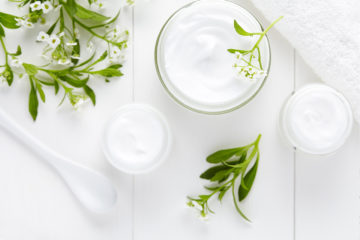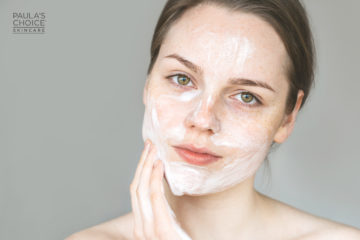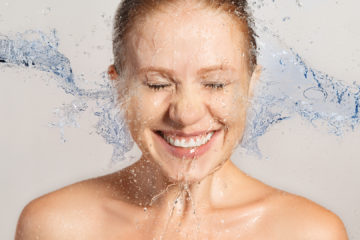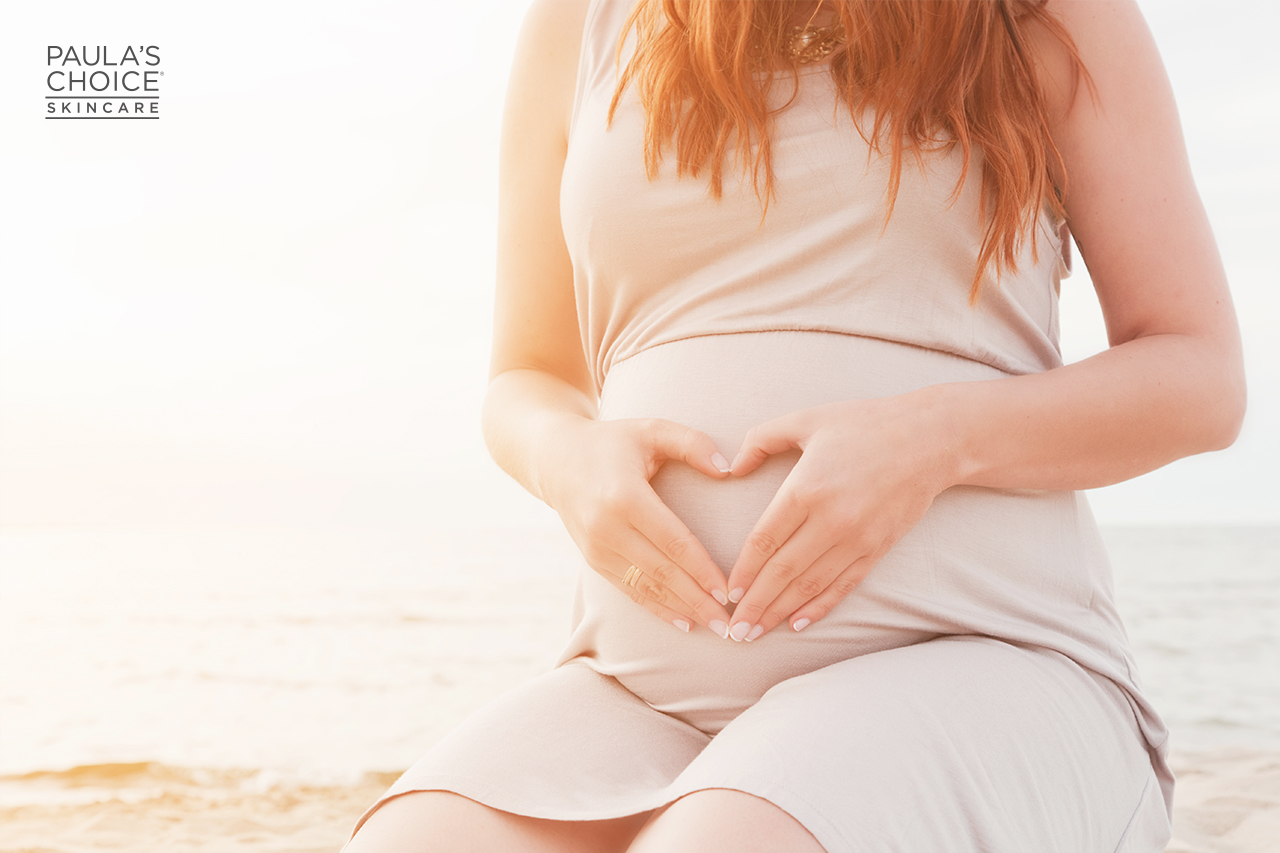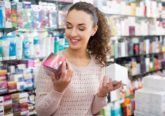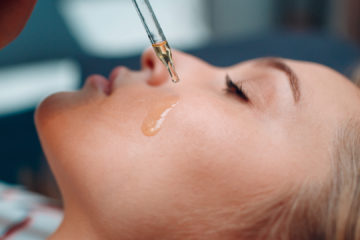Pregnancy and Skincare: A Guide For Moms-to-be
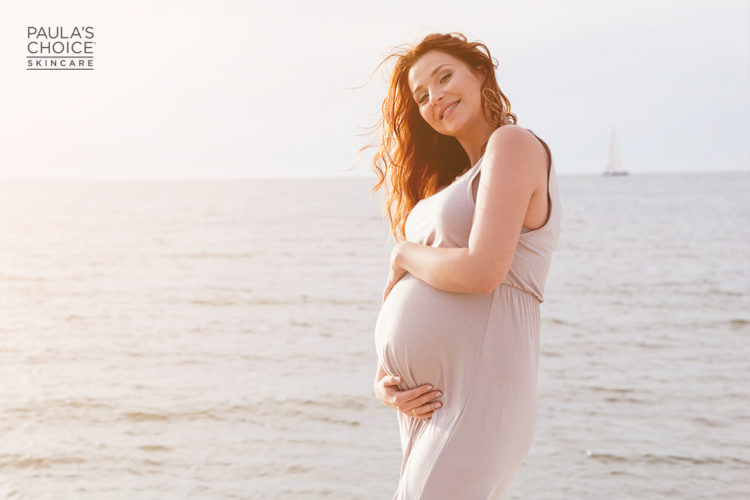
Pregnancy and motherhood are life-changing and exciting times for women. However, they also come with a host of health-related concerns. From the appropriate food to eat, products and medicine to use, how to cope with the many bodily changes to caring for yourself and baby, there seems to be a whole lot of new knowledge to learn.
We’re sure staying beautiful and radiant throughout your pregnancy is important to you too. However, skincare products are absorbed into the body and will affect the baby and you. Which are the ones that are safe for moms-to-be and nursing mothers? Are there any specific ingredients you should avoid? We’re happy to share some insights!
Hydroquinone & Retinol
Hydroquinone and Retinoids / Retinol have not been clinically tested on human or animals specifically during pregnancy.
“There is insufficient information to assess the risk involved.”
It is encouraged that you understand your own body and if you have used these ingredients before. As a precaution, you are better off not using skincare products that contain these ingredients (Hydroquinone and Retinoids / Retinol) during pregnancy and breastfeeding. The lack of studies available guaranteeing your safety is good enough a reason not to try!
Benzoyl Peroxide & Salicylic Acid
Contrary to popular belief, Benzoyl Peroxide – a common ingredient found in pimple creams, and Salicylic Acid – a superior exfoliant to treat enlarged pores and blackheads, are considered safe to use in low concentrations during pregnancy.
Small percentages used in your skin care routine (2% or lower) for Salicylic Acid, and (5% or lower) for Benzoyl Peroxide are considered safe. A large number of products out there that are available over-the-counter are generally in this range, but it is advised that you check before your purchase.
Glycolic Acid & Lactic Acid
Glycolic Acid and Lactic Acid are Alpha Hydroxy Acids (AHA) that exfoliate dead skin cells on the surface of the skin. Both ingredients are excellent alternatives to choose from when in need of an exfoliant during your pregnancy, should you want to avoid Salicylic Acid completely.
Glycolic Acid and Lactic Acid found in skincare products are safe to use during pregnancy.
Sunscreen Actives
According to the American College of Obstetricians and Gynecologists, Sunscreen Actives are not known to be a risk during pregnancy. Applying sunscreen daily is strongly recommend by dermatologists.
You may want to consider sunscreens that contains gentle mineral actives, should you find your skin more sensitive during pregnancy. Titanium dioxide and Zinc Oxide are gentle on skin and suitable even for rosacea. Look for a sunscreen that is at least SPF 15 or more, that should give you enough coverage to prevent sun damage.
Taking Care Of Your Skin During Pregnancy
Given the various safe-to-use and not-so-safe ingredients in skincare products, how do you make an informed choice? Here are our recommendations on how to take care of some common skincare issues that could arise during pregnancy. Remember to always consult your doctor should you have concerns.
1. Stretch Marks
The abnormal stretching of the skin for an extended period of time during your pregnancy can break down the elastin and collagen (building blocks of skin) and reduce its elasticity. Stretch marks will thus form.
While most women will be affected by stretch marks during and after pregnancy, there are a number of lucky few who are spared from the irritating skincare issue, though the reason so is still unknown.
Contrary to popular belief, there are no skincare products that can significantly improve the appearance of stretch marks.
However, gently massaging your skin with a quality plant oils when you’re pregnant keeps your skin soft and supple and may reduce their appearance.
During pregnancy:
Paula’s Choice Resist Moisture Renewal Oil Booster
A blend of nine essential, non-fragrant plant oils, this is great for dry, sensitive skin. Its silky smooth texture, antioxidants and fatty acids hydrates and soften your skin, minimizing your skin luxuriously and reducing the appearance of stretch marks effectively.
Past the breastfeeding stage:
Skincare products with tretinoin may improve stretch marks slightly. You may also consider cosmetic corrective treatments such as Intense Pulse Light (IPL), Pulsed Dye Laser (PDL) treatments and skincare products with trichloroacetic acid (TCA), alpha hydroxy acid or beta hydroxy acid peels.
2. Hyperpigmentation (Skin Discoloration)
Due to hormonal changes during pregnancy, hyperpigmentation such as freckles and dark spots may appear. While you can use facial scrubs, they may not be as effective as AHA or BHA exfoliants. For your body, an AHA or BHA body lotion is a good, safe option.
Paula’s Choice SKIN PERFECTING 2% BHA Liquid Exfoliant
The low 2% BHA concentration is safe for use throughout your pregnancy while gently sweeping away unwanted pigmentation. The mild, non-abrasive leave-on exfoliant also unclogs pores, reduces the appearance of wrinkles and promotes an even skin tone. So you can be revelling in smooth, radiant and more supple complexion while anticipating the arrival of the baby. This is also available in a hydrating leave-on gel form.
Paula’s Choice Resist Weightless Body Treatment with 2% BHA
Suitable to keep your arms, legs and body feeling ultra-smooth and radiant throughout your pregnancy with its mild 2% BHA content, this silky light body lotion also softens rough skin and minimizes the appearance of clogged pores on arms and legs. Its potent combination of antioxidants also protects the skin while not adversely affecting the baby at all.
3. Sun Protection
While sunscreen is an important skincare step on normal days, it becomes even more important when you’re pregnant.
As your skin may become more sensitive during pregnancy, using a sunscreen of at least SPF 25 can go a long way to minimizing skin discolouration and spots. It’s best to use a sunscreen that contains active mineral ingredients such as titanium dioxide and/or zinc oxide.
Paula’s Choice Resist Super-light Wrinkle Defense SPF 30
It contains the mineral sun-protecting zinc oxide that’s mild enough to be used even on the sensitive skin around the eyes. The lightly tinted, mineral-based formulation blends into your skin flawlessly, giving you a soft, matte finish.
Paula’s Choice Skin Recovery Daily Moisturizing Lotion SPF 30
This contains active sun-protecting mineral ingredients such as zinc oxide and titanium dioxide, skin-nourishing antioxidants, ceramides and anti-ageing peptides that keep your skin dewy and soft while protecting it against the damaging rays of the sun throughout your pregnancy. It works wonderfully under makeup, so you can be putting on your foundation or pressed powders (which are best with mineral sunscreen ingredients) after the sunscreen application.
4. Pregnancy Rosacea
Some moms-to-be may develop rosacea, a skin condition characterized by facial redness, flushing, small visible blood vessels, small red bumps and swellings. There are several skincare products that you can use to manage this condition.
Paula’s Choice Calm Redness Relief SPF 30 Moisturizer
This is a creamy, mineral-based sunscreen containing sun-protecting active minerals zinc oxide and titanium dioxide that defend the skin against sun damage. Suitable even for extra sensitive skin, soothing plant extracts reduce redness while antioxidants and peptides calm the skin. As your skin may become more sensitive during pregnancy, it’s good to use this as the last step in your beauty routine before you step out of the house during the day.
Hydralight Shine-Free Mineral Complex SPF 30
This lightweight, antioxidant-rich sunscreen contains mineral active minerals zinc oxide and titanium dioxide that gently offer broad-spectrum protection from the sun’s harmful rays to stop premature ageing in its tracks. Great for every skin type and extra sensitive skin, this formulation calms red skin while replenishing and revitalizing it.
Rosacea developed during pregnancy may also be alleviated by using metronidazole. Known to be safe for moms-to-be, it is an antibiotic which is commonly used to treat bacterial infections. Azelaic acid, usually prescribed for acne, is also effective in calming symptoms of rosacea. It has also proven to be safe for expectant mothers.
5. Wrinkles/Anti-aging
The battle against fine lines and wrinkles doesn’t stop even when you’re pregnant. However, you should pay more attention to the ingredients listed on your anti-wrinkle creams and serums.
Avoid prescription retinoids and over-the-counter skincare products containing retinol. While being powerhouses for erasing fine lines and wrinkles, some studies have shown that high doses of retinoids during pregnancy could be harmful to the fetus. So, it’s best that you stay away from prescribed retinoids like Differin, Renova, Retin-A, tretinoin and Tazorac.
So, how do you continue with anti-ageing skincare during pregnancy? You may wish to use skincare products with vitamin C, niacinamide and antioxidants as they’re not known to be causes for concern for expectant mothers. However, do check with your physician if you have any doubts.
Paula’s Choice Resist C15 Super Booster
This lightweight liquid formula contains vitamin C in a high-strength 15% concentration that dramatically improves the appearance of fine lines and wrinkles to reveal a brighter, more radiant complexion.
Paula’s Choice Resist 10% Niacinamide Booster
The first 10% niacinamide treatment that’s widely available, the higher concentration of niacinamide and a powerful combination of antioxidants and skin-repairing ingredients make this a wonderful powerful anti-ageing weapon, pore minimizer as well as skin moisturizer, especially on oily/blemish-prone skin.
Is Niacinamide Safe To Use During Pregnancy?
Also known as vitamin B3 and nicotinic acid, niacinamide is a very effective skin-restoring ingredient that offers multiple benefits for ageing skin. Niacinamide is safe to use during pregnancy and studies have shown that niacinamide works well to ameliorate hyperpigmentation and even out skin tone as well. If you are breastfeeding topical niacinamide is also safe for application.
Conclusion
We hope you now have a clearer idea (and more peace of mind) of what’s good and what’s not to use in your beauty and skincare routine during pregnancy.
Have any other questions about pregnancy and skincare? Leave a comment below and we would be glad to provide some advice.



